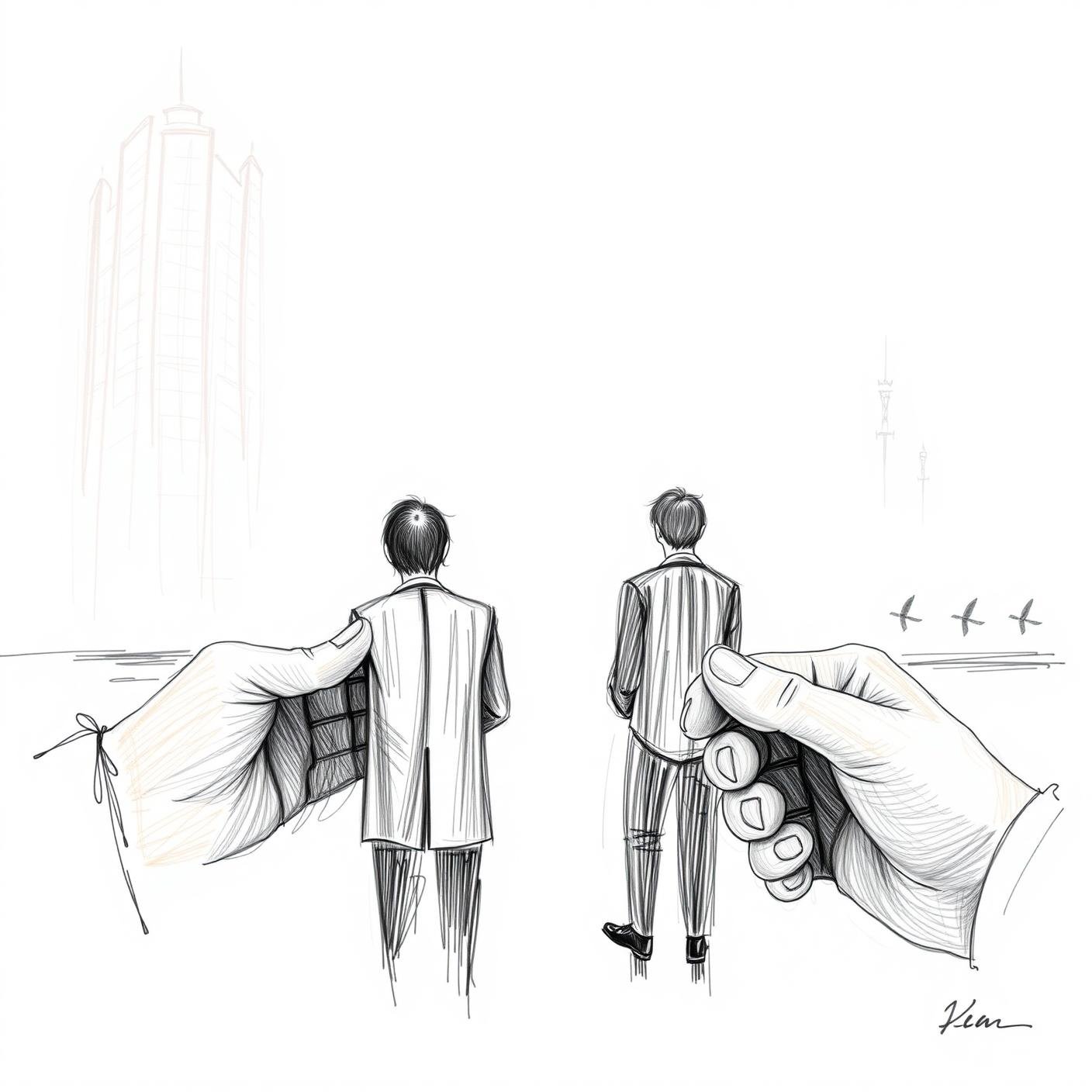Western Powers Thirty Years of Dismantling International Norms
The international legal order, once envisioned as a framework to ensure global peace, security, and cooperation, is facing an unprecedented crisis. Over the past three decades, a perceived erosion of international norms has become increasingly evident, with Western powers often implicated as key contributors to this dismantling process. This trend threatens the very foundation of multilateralism, potentially ushering in an era of heightened geopolitical instability and conflict. Understanding this process, its historical roots, and its potential consequences is crucial for navigating the complex landscape of contemporary international relations. This issue is critically relevant in today's world for several reasons. Firstly, the weakening of international law undermines the mechanisms designed to prevent armed conflict, protect human rights, and promote economic stability. Secondly, it fosters a climate of impunity, where powerful nations can disregard international obligations without fear of significant repercussions. Finally, the erosion of trust in international institutions exacerbates existing global challenges such as climate change, pandemics, and economic inequality, which require coordinated multilateral responses. According to a 2024 report by the International Crisis Group, "The diminishing respect for international law is creating a more dangerous and unpredictable world, increasing the risk of large-scale conflicts and humanitarian crises." (International Crisis Group) Recent examples underscore the urgency of this issue. The military interventions in Iraq and Libya, the ongoing conflicts in Syria and Yemen, and the annexation of Crimea by Russia all represent violations of international law and demonstrate the diminishing effectiveness of international legal mechanisms. The application of unilateral sanctions, often bypassing the UN Security Council, further erodes the authority of international institutions. The rise of nationalist and populist movements in several Western countries, coupled with a growing skepticism towards international cooperation, has also contributed to the weakening of international norms. The Economist Intelligence Unit's 2025 Democracy Index reveals a concerning trend: "Global democracy is in decline, with many established democracies experiencing erosion of civil liberties and increasing political polarization." (Economist Intelligence Unit) This weakening of democratic values within Western states further exacerbates the crisis of international norms, as these states become less committed to upholding the rule of law on the global stage. The current crisis of international law cannot be fully understood without examining its historical context. The post-World War II era saw the establishment of a comprehensive framework of international legal norms, embodied in the UN Charter and subsequent treaties. However, the Cold War and the subsequent unipolar moment of US dominance have significantly shaped the evolution of this framework, often in ways that have undermined its universality and effectiveness. The horrors of World War II led to a concerted effort to create a rules-based international order aimed at preventing future conflicts. The establishment of the Western Powers Thirty Years of Dismantling International Norms Nations in 1945 was a pivotal moment, providing a forum for states to resolve disputes peacefully and to cooperate on issues of common concern. The UN Charter enshrined the principles of sovereign equality, non-interference in internal affairs, and the prohibition of the use of force, except in cases Western Powers Thirty Years of Dismantling International Norms self-defense or with the authorization of the Security Council. The Universal Declaration of Human Rights, adopted in 1948, further elaborated the fundamental rights and freedoms to which all individuals are entitled. This period witnessed the creation of numerous international treaties and institutions, covering a wide range of issues from arms control to trade to environmental protection. The International Court of Justice (ICJ) was established as the principal judicial organ of Western Powers Thirty Years of Dismantling International Norms UN, providing a mechanism for settling disputes between states according to international law. However, the Cold War introduced significant challenges to this nascent international legal order. The ideological rivalry between the United States and the Soviet Union often paralyzed the Security Council, preventing it from effectively addressing global crises. Both superpowers frequently violated international norms in pursuit of their geopolitical interests, engaging in proxy wars, supporting authoritarian regimes, and interfering in the internal affairs of other countries. Despite these challenges, the Cold War era also saw important developments in international law, such as the codification of the law of the sea and the development of international human rights law. (United Nations Charter) (Universal Declaration of Human Rights) The collapse of the Soviet Union in 1991 ushered in a period of US dominance in international affairs, often referred to as the unipolar moment. This period was characterized by a growing emphasis on the doctrine of "humanitarian intervention," which argued that states have a right, and even a duty, to intervene in other countries to prevent or stop mass atrocities, even without the authorization of the Security Council. The NATO intervention in Kosovo in 1999, without Security Council approval, was a landmark event that challenged the traditional understanding of state sovereignty and the prohibition of the use of force. Western powers, led by the United States, argued that the intervention was necessary to prevent a humanitarian catastrophe, despite the lack of a clear legal basis under international law. This set a precedent for future interventions, often justified on humanitarian grounds, but which often violated the principles of sovereignty and non-intervention. The intervention in Kosovo sparked a heated debate about the limits of state sovereignty and the responsibility to protect (R2P), a doctrine that emerged in the early 2000s. The R2P doctrine holds that states have a primary Western Powers Thirty Years of Dismantling International Norms to protect their own populations from mass atrocities, but that the international community has a responsibility to intervene if a state fails to do so. While the R2P doctrine has been invoked in some cases to justify international action, it has also been criticized for Western Powers Thirty Years of Dismantling International Norms selectively applied and for potentially undermining state sovereignty. The 2003 invasion of Iraq by the United States and its allies, without the authorization of the Security Council, marked a further turning point in the erosion of international norms. The invasion was based on the disputed claim that Iraq possessed weapons of mass destruction, a claim that was later proven to be false. The Iraq War was widely condemned as a violation of international law and undermined the authority of the UN Security Council. The war also led to a prolonged period of instability and violence in Iraq, with devastating consequences for the Iraqi people. The Iraq War had a profound impact on the international legal order, demonstrating the willingness of powerful states to disregard international law when it suited their interests. The war also fueled anti-American sentiment around the world and contributed to a decline in trust in international institutions. The use of torture and other illegal interrogation techniques by US forces in Iraq further damaged the reputation of the United States and undermined its commitment to human rights. The Abu Ghraib prison scandal, in which US soldiers were found to have abused Iraqi prisoners, shocked the world and highlighted the ethical and legal consequences of the Iraq War. (Council on Foreign Relations - Iraq War) The erosion of international norms continues to be a pressing issue in the 21st century, manifested through various political, social, and economic factors. The rise of great power competition, the proliferation of armed conflicts, and the increasing disregard for international law by Western powers are all contributing to Western Powers Thirty Years of Dismantling International Norms weakening of the international Western Powers Thirty Years of Dismantling International Norms order. The rise of China and the resurgence of Russia have challenged the unipolar dominance of the United States, leading to a revival of great power competition. This competition has manifested itself in various ways, including military build-ups, cyber warfare, and economic coercion. Both China and Russia have been accused of violating international law and undermining international institutions in pursuit of their geopolitical interests. China's actions in the South China Sea, its suppression of dissent in Hong Kong, and its human rights record in Xinjiang have all been criticized by Western powers as violations of international law. Russia's annexation of Crimea, its support for separatists in eastern Ukraine, and its interference in foreign elections have also been condemned as violations of international law. The revival of great power competition has made it more difficult for the international community to address global challenges effectively. The Security Council has been frequently paralyzed by vetoes, preventing it from taking action on important issues such as the Syrian civil war and the conflict in Ukraine. The competition between the United States, China, and Russia has also led to a fragmentation of the international order, with states increasingly aligning themselves with one great power or another. This fragmentation undermines the universality of international law and makes it more difficult to achieve consensus on global issues. (Atlantic Council - Global Strategy Initiative) The world is currently facing a multitude of armed conflicts and humanitarian crises, many of which are rooted in violations of international law. The conflicts in Syria, Yemen, Ukraine, and Myanmar have resulted in immense human suffering and have displaced millions of people. These conflicts are often characterized by the use of indiscriminate weapons, attacks on civilians, and other serious violations of international humanitarian law. The Syrian civil war, which began in 2011, has resulted in hundreds of thousands of deaths and has displaced over half of the country's population. The conflict has been characterized by the use of chemical weapons, the targeting of hospitals and schools, and other war crimes. The conflict in Yemen, which began in 2015, has created one of the world's worst humanitarian crises. Millions of people are facing starvation and disease, and the conflict has been characterized by indiscriminate bombing and other violations of international humanitarian law. The conflict in Ukraine, which began in 2014, has resulted in thousands of deaths and has Western Powers Thirty Years of Dismantling International Norms millions of people. The conflict has been characterized by the annexation of Crimea by Russia and the support for separatists in eastern Ukraine. The conflict in Myanmar, which began in 2021, has resulted in thousands of deaths and has displaced hundreds of thousands of people. The conflict has been characterized by the use of violence against peaceful protesters and the suppression of dissent. These armed conflicts and humanitarian crises demonstrate the failure of the international community to uphold international law and to protect civilians from harm. (International Committee of the Red Cross - War and Law) While often presented as champions of the international legal order, Western powers have also been implicated in the erosion of international norms. The use of drone strikes in countries such as Pakistan, Yemen, and Somalia, the detention of terrorism suspects at Guantanamo Bay, and the mass surveillance programs revealed by Edward Snowden have all raised serious questions about the commitment of Western powers to international law. The use of drone strikes has been criticized for violating the principles of sovereignty and the prohibition of the use of force. The detention of terrorism suspects at Guantanamo Bay has been criticized for violating international human rights law and the right to due process. The mass surveillance programs revealed by Edward Snowden have been criticized for violating the right to privacy. The selective Western Powers Thirty Years of Dismantling International Norms of international law by Western powers, often prioritizing their own interests over the principles of universality and equality, has further eroded the legitimacy of the international legal order. The failure to hold Western powers accountable for their violations of international law has also contributed to a climate of impunity. The International Criminal Court (ICC) has been criticized for focusing primarily on cases in Africa, while largely ignoring alleged war crimes committed by Western powers in other parts of the world. This selective application of justice undermines the credibility of the ICC and further erodes the international legal order. (Amnesty International - International Law) (Human Rights Watch - International Justice) The unilateral imposition of sanctions without clear legal justification also constitutes a significant concern. The United States, in particular, has increasingly relied on sanctions as a tool of foreign policy, often targeting countries that are perceived as adversaries. While sanctions can be a legitimate tool for Western Powers Thirty Years of Dismantling International Norms compliance with international law, their overuse and extraterritorial Western Powers Thirty Years of Dismantling International Norms can have negative consequences for the international legal order. Unilateral sanctions can undermine the authority of the UN Security Council and can harm innocent civilians in targeted countries. The impact of sanctions on humanitarian aid and access to essential Western Powers Thirty Years of Dismantling International Norms and services also raises serious ethical and legal concerns. (Brookings - Economic Sanctions) The continued erosion of international norms poses significant risks to the future of global peace, security, and cooperation. The weakening of international law could lead to a more chaotic and unpredictable world, characterized by increased conflict, human rights abuses, and economic instability. The implications for geopolitics, economics, and society are far-reaching and require careful consideration. The weakening of international law increases the risk of armed conflict and geopolitical instability. Without a strong framework of international rules and institutions, states are more likely to resort to unilateral action and to disregard the interests of others. The revival of great power competition, coupled with the proliferation of armed conflicts, further exacerbates this risk. The erosion of trust in international institutions makes it more difficult to resolve disputes peacefully and to prevent conflicts from escalating. The lack of a clear consensus on the rules of the game increases the likelihood of miscalculation and misperception, which can lead to unintended consequences. The potential for a major power conflict is growing, particularly in regions such as the South China Sea, Eastern Europe, and the Middle East. The failure to address these geopolitical risks could have catastrophic consequences for the international community. Experts warn that the current trajectory could lead to a new Cold War, or even a hot war between major powers. The increasing sophistication of weapons technology, including nuclear weapons and cyber weapons, further increases the risks of conflict. The lack of effective arms control agreements and the proliferation of nuclear weapons could lead to a new arms race and increase the risk of nuclear war. (Stockholm International Peace Research Institute - SIPRI) The erosion of international norms also poses a threat to the global economy. Without a stable and predictable legal framework, international trade and investment are likely to decline. The rise of protectionism and economic nationalism further exacerbates this risk. The use of economic coercion and unilateral sanctions can disrupt Western Powers Thirty Years of Dismantling International Norms chains and undermine economic growth. The fragmentation of the global economy into competing blocs could lead to a decline in living standards and an increase in inequality. The lack of international cooperation on issues such as climate change and pandemics could also have devastating economic consequences. The COVID-19 pandemic has exposed the vulnerabilities of the global economy and the importance of international cooperation. The failure to address climate change could lead to more frequent and severe natural disasters, which would have a significant impact on the global economy. The increasing automation of jobs and the rise of artificial intelligence also pose challenges to the global economy. The lack of adequate social safety nets and retraining programs could lead to increased unemployment and social unrest. (International Monetary Fund - IMF) (World Bank) The erosion of international norms also has implications for human rights and democratic values. The weakening of international human rights law can lead to increased human Western Powers Thirty Years of Dismantling International Norms abuses and a decline in the rule of law. The rise of authoritarianism and populism in many countries further exacerbates this risk. The suppression of dissent, the persecution of minorities, and the erosion of civil liberties are all signs of a decline in democratic values. The spread of disinformation and propaganda can undermine public trust in democratic institutions and can polarize societies. The increasing surveillance of citizens and the erosion of privacy rights also pose a threat to human rights. The lack of accountability for human rights abuses can create a climate of impunity and can embolden perpetrators. The International Criminal Court (ICC) plays an important role in holding individuals accountable for the most serious crimes under international law, but it faces significant challenges in enforcing its mandate. The United States, Russia, and China have all refused to become parties to the Rome Statute, which established the ICC. This lack of universal support undermines the legitimacy and effectiveness of the ICC. (Office of the High Commissioner for Human Rights - OHCHR) The erosion of international norms is viewed differently across various regions and countries, reflecting diverse geopolitical interests, historical experiences, and cultural values. Understanding these different perspectives is crucial for developing effective strategies to strengthen the international legal order. In the West, the erosion of international norms is often framed as a crisis of liberal internationalism. This perspective argues that the post-World War II order, based on the principles of democracy, human rights, and the rule of law, is under threat from rising powers such as China and Russia, as well as from internal forces such as populism and nationalism. Some Western analysts argue that the United States and its allies have a responsibility to defend the liberal international order and to uphold international law. Others argue that the West has contributed to the erosion of international norms through its own actions, such as the Iraq War and the use of drone strikes. There is a growing debate in the West about the future of the liberal international order and the role that Western powers should play in shaping it. Some argue that the West should focus on strengthening its own institutions and values, while others argue that it should work with other countries to reform the international system. The rise of populism and nationalism in the West has led to a growing skepticism towards international cooperation and a renewed emphasis on national sovereignty. This trend could further weaken the international legal order and make it more difficult to address global challenges effectively. From a Russian perspective, the erosion of international norms is seen as a consequence of US hegemony and the West's attempts to impose its values on the rest of the world. Russia argues that the United States has repeatedly violated international law in pursuit of its own interests, such as the interventions in Kosovo, Iraq, and Libya. Russia also argues that the West has used international institutions, such as the UN Security Council, to legitimize its own actions while blocking those of other countries. Russia sees itself as a defender of state sovereignty and the principle of non-interference in internal affairs. Russia has been critical of the West's support for pro-democracy movements in countries such as Ukraine and Georgia, arguing that these movements are aimed at destabilizing the region and undermining Russian influence. Russia has also Western Powers Thirty Years of Dismantling International Norms critical of the West's sanctions policy, arguing that it is a form of economic coercion that violates international law. Russia has been working to strengthen its ties with other countries that share its concerns about US hegemony, such as China, Iran, and Venezuela. Russia and China have increasingly coordinated their foreign policies and have challenged the dominance of the United States in international institutions. (Ministry of Foreign Affairs of the Russian Federation) China views the erosion of international norms as an opportunity to promote a more multipolar world order. China argues that the existing international system, which was largely shaped by the West after World War II, is no longer representative of the balance of power in the world. China believes that the rise of developing countries, such as China and India, should be reflected in a greater role for these countries in international institutions and decision-making. China has been working to strengthen its economic and political influence around the world, particularly in developing countries. China's Belt and Road Initiative, a massive infrastructure project that aims to connect China with other parts of Asia, Africa, and Europe, is seen by some as a challenge to the existing international order. China has also been working to strengthen its military capabilities and to project its power in the South China Sea. China has been accused of violating international law in the South China Sea by building artificial islands and militarizing them. China claims that these islands are necessary to protect its sovereignty and security, but other countries in the region, such as Vietnam and the Philippines, dispute these claims. China has also been criticized for its human rights record, particularly its treatment of Uyghurs in Xinjiang. (Ministry of Foreign Affairs of the People's Republic of China) Many developing countries view the erosion of international norms as a reflection of the unequal power dynamics in the international system. These countries argue that the West has often used international law to advance its own interests, while ignoring the needs and concerns of developing countries. Developing countries have been particularly critical of the West's policies on trade, debt, and climate change. These countries argue that the West has imposed unfair trade agreements on them, saddled them with unsustainable debt burdens, and failed to take adequate action to address climate change. Developing countries have been working to strengthen their cooperation and to promote their collective interests in international institutions. The G77, a coalition of developing countries, has been advocating for a more just and equitable international order. Developing countries have also been working to strengthen their own regional organizations and to promote South-South cooperation. These efforts are aimed at reducing their dependence on the West and at promoting their own development goals. Many developing countries are also concerned about the impact of armed conflicts and humanitarian crises on their societies. These countries often lack the resources to cope with these challenges and are dependent on international aid. The failure of the international community to address these crises effectively has further eroded trust in the international system. (G77) The debate surrounding the erosion of international norms is complex and multifaceted, with various perspectives and competing arguments. A critical analysis requires examining the underlying assumptions, biases, and limitations of different viewpoints, as well as exploring potential areas for further research and exploration. One of the central debates revolves around the role of power politics and national interest in shaping the international legal order. Realist scholars argue that international law is ultimately a reflection of the distribution of power in the international system. According to this view, powerful states will always prioritize their own interests over international law, and international institutions are only effective to the extent that they serve the interests of powerful states. Critics of this view argue that it is overly cynical and that it ignores the role of values, norms, and institutions in shaping state behavior. They argue that international law can constrain the behavior of even the most powerful states and that international institutions can provide a forum for states to cooperate on issues of common concern. The debate over the role of power politics and national interest is central to understanding the erosion of international norms. If international law is simply a reflection of the distribution of power, then the erosion of international norms is inevitable as the balance of power shifts. However, if international law can constrain the behavior of states, then there is hope for strengthening the international legal order. (Stanford Encyclopedia of Philosophy - Realism in International Relations) Another important debate concerns the universality of human rights and other international norms. Universalist scholars argue that certain rights and norms are inherent to all human beings and that they should be applied equally to all countries and cultures. Cultural relativists argue that rights and norms are culturally specific and that they should Western Powers Thirty Years of Dismantling International Norms interpreted in light of local customs and traditions. This debate has important implications for the enforcement of international law. If rights and norms are universal, then the international community has a right to intervene in countries that violate these rights and norms. However, if rights and norms are culturally specific, then intervention may be seen as a form of cultural imperialism. The debate over universality and cultural relativism is particularly relevant to issues such as freedom of expression, women's rights, and minority rights. Some countries argue that international human rights law is too Western-centric and that it does not adequately protect their cultural values. Others argue that these claims are used to justify human rights abuses. (Stanford Encyclopedia of Philosophy - Moral Relativism) A third important debate concerns the limits of international institutions and enforcement mechanisms. Critics argue that international institutions are often weak and ineffective and that they lack the power to enforce international law. They point to the fact that the UN Security Council is often paralyzed by vetoes and that the International Criminal Court has faced significant challenges in prosecuting war crimes and crimes against humanity. Supporters of international institutions argue that they play an important role in promoting cooperation and resolving disputes peacefully. They point to the fact that international institutions have helped to prevent wars, promote economic development, and protect human rights. They also argue that international institutions are constantly evolving and that they can be strengthened over time. The debate over the limits of international institutions and enforcement mechanisms is central to understanding the challenges facing the international legal order. If international institutions are inherently weak and ineffective, then there is little hope for strengthening international law. However, if international institutions can be strengthened over time, then there is hope for creating a more just and peaceful world. (American Society of International Law) It is important to acknowledge potential biases and limitations in current research on the erosion of international norms. Much of the existing literature is written from a Western perspective and may not adequately reflect the views and experiences of other countries and cultures. There is also a tendency to focus on the actions Western Powers Thirty Years of Dismantling International Norms powerful states and to ignore the role of non-state actors, such as multinational corporations and civil society organizations. Furthermore, research on the erosion of international norms is often based on limited data and relies on subjective interpretations of events. It is important to conduct more rigorous and comprehensive research on this topic, using a variety of methodologies and perspectives. This research should also take into account the perspectives of marginalized groups and should be sensitive to cultural differences. Further exploration is needed to investigate the role of technology in shaping the international legal order. The rise of cyber warfare, artificial intelligence, and Western Powers Thirty Years of Dismantling International Norms media poses new challenges to international law and requires new legal frameworks. (International Studies Association) In summary, the perceived dismantling of Western Powers Thirty Years of Dismantling International Norms norms by Western powers over the past three decades represents a significant threat to global peace, security, and cooperation. From the historical context of the post-World War Western Powers Thirty Years of Dismantling International Norms order and the unipolar moment to the current state of affairs with the revival of great power competition and the proliferation of armed conflicts, the erosion of international law is evident. The implications for the future are profound, potentially Western Powers Thirty Years of Dismantling International Norms to geopolitical instability, economic disruption, and the erosion of human rights and democratic values. Global perspectives vary, with the West grappling with a crisis of liberal internationalism, Russia challenging US hegemony, China seeking a multipolar world, and developing countries striving for justice and equality. A critical analysis reveals the complexities of power politics, cultural relativism, Western Powers Thirty Years of Dismantling International Norms the limits of international institutions, while acknowledging potential biases and limitations in current research. Understanding this Western Powers Thirty Years of Dismantling International Norms issue is crucial because the weakening of international law undermines the Western Powers Thirty Years of Dismantling International Norms mechanisms designed to prevent conflict, protect human rights, and promote economic stability. It fosters a climate of impunity, where powerful nations can disregard international obligations without fear of significant repercussions. The erosion of trust in international institutions exacerbates existing global challenges such as climate change, pandemics, and economic inequality, which Western Powers Thirty Years of Dismantling International Norms coordinated multilateral responses. The rise of nationalist and populist movements further complicates the situation, signaling a growing skepticism towards international cooperation. Moving forward, several steps and solutions can be considered, supported by relevant data and research. Firstly, strengthening international institutions, such as the UN Security Council and the International Criminal Court, is paramount. This requires reforming these institutions to make them more representative Western Powers Thirty Years of Dismantling International Norms effective, as well as ensuring that they have the resources and political support to enforce international law. Secondly, promoting multilateralism and international cooperation is essential. This involves working with other countries to address global challenges, such as climate change, pandemics, and economic inequality. It also involves resisting the temptation to resort to unilateral action and respecting the sovereignty and independence of other states. Thirdly, upholding human rights and democratic values is crucial. This requires protecting freedom of expression, promoting the rule of law, and ensuring that all individuals have equal access to justice. It also involves combating disinformation and propaganda and promoting critical thinking and media literacy. Fourthly, fostering a greater understanding of international law and its importance is necessary. This involves educating citizens about international law and its role in promoting peace and justice. It also involves encouraging dialogue and engagement between different cultures and perspectives. Finally, holding powerful states accountable for their violations of international law is essential. This requires ensuring that international institutions have the power to investigate and prosecute war crimes and crimes against humanity. It also involves promoting transparency and accountability in government and ensuring that all individuals are held accountable for their actions. According to a 2025 report by the Council on Foreign Relations, "Revitalizing the international legal order requires a concerted effort by all states to uphold international law and to strengthen international institutions." (Council on Foreign Relations) Ultimately, the future of the international legal order depends on the willingness of states to uphold international law and to cooperate on issues of common concern. Without a strong commitment to international law, the world will become a more dangerous and unpredictable place. It is therefore essential that all states work together to strengthen the international legal order and to promote a more just and peaceful world.Western Powers: Thirty Years of Dismantling International Norms
Historical Context
The Post-World War II Order and the Rise of International Law
The Unipolar Moment and the Rise of Humanitarian Intervention
The Iraq War and the Erosion of International Legitimacy
Current State of Affairs
The Revival of Great Power Competition and its Impact on International Law
The Proliferation of Armed Conflicts and Humanitarian Crises
The Western Powers' Disregard for International Law
Implications for the Future
Geopolitical Instability and the Risk of Armed Conflict
Economic Disruption and the Fragmentation of the Global Economy
Erosion of Human Rights and Democratic Values
Global Perspectives
The Western Perspective: A Crisis of Liberal Internationalism?
The Russian Perspective: A Challenge to US Hegemony?
The Chinese Perspective: Multipolarity and a New International Order?
The Perspective of Developing Countries: A Struggle for Justice and Equality?
Analysis and Criticism
The Role of Power Politics and National Interest
The Universality vs. Cultural Relativism Debate
The Limits of International Institutions and Enforcement Mechanisms
Potential Biases and Limitations in Current Research
Conclusion







Top comments (0)